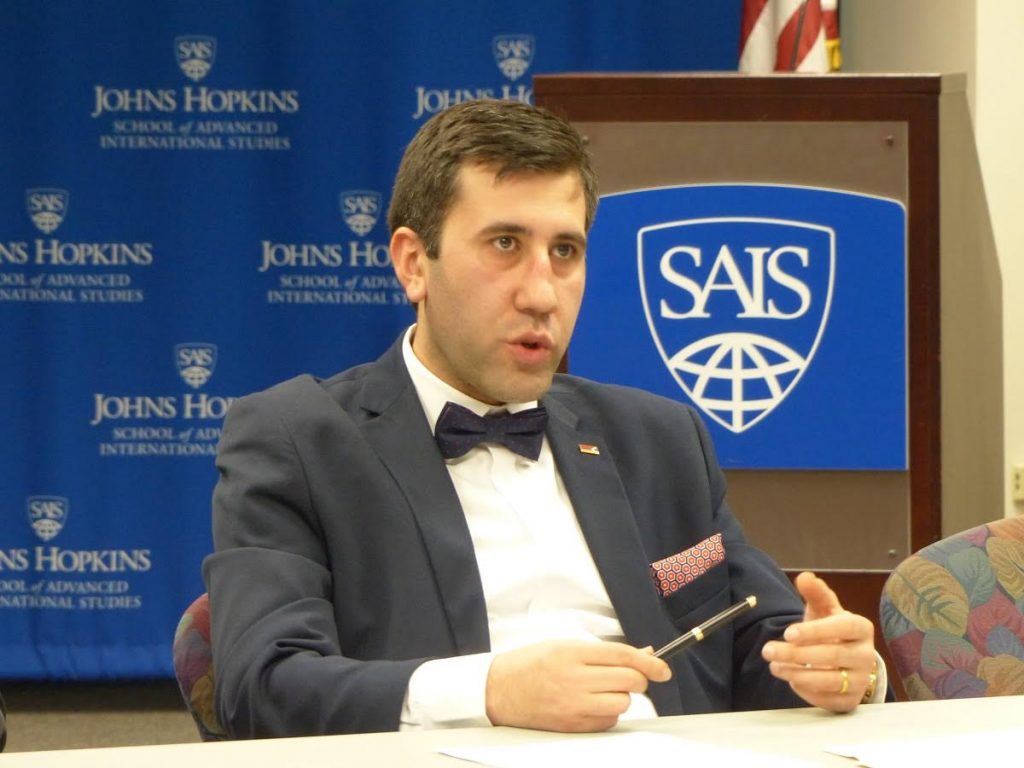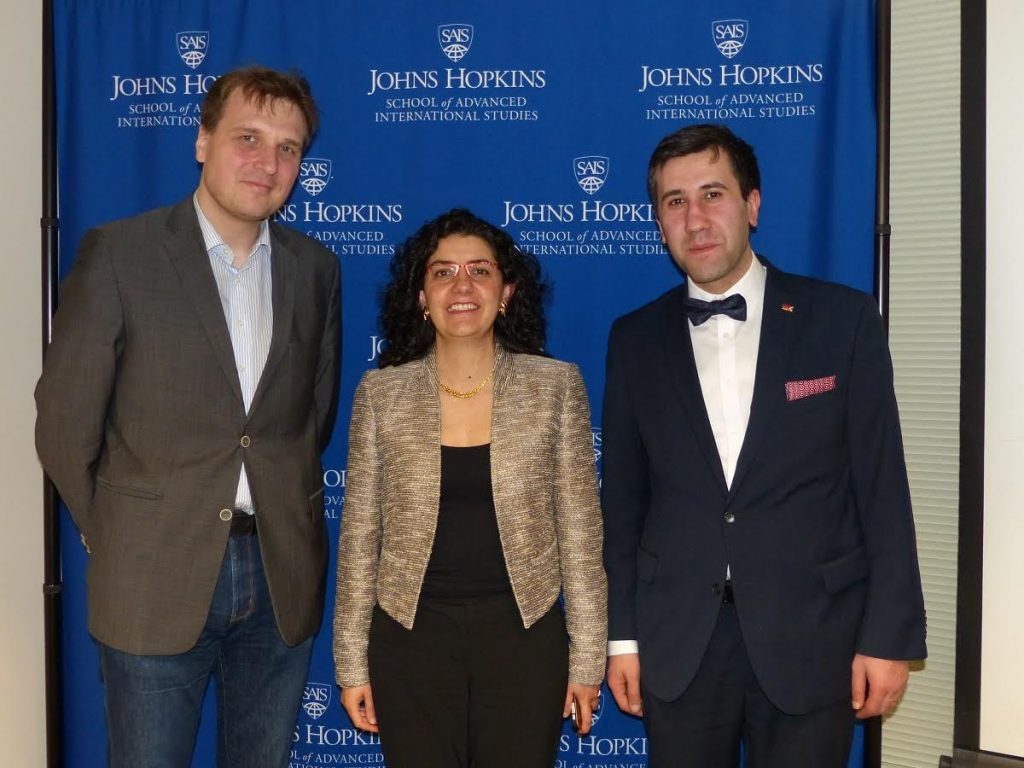Melikyan Presents Detailed Atrocities Report from Azerbaijan’s 2016 War Against Artsakh
WASHINGTON—Artsakh Ombudsman (Human Rights Defender) Ruben Melikyan outlined the work of his office and presented the findings of its latest report on Azerbaijani war crimes and atrocities committed during the 2016 April War to public policy leaders at a forum sponsored by the Center for Transatlantic Relations (CTR) at the Johns Hopkins University Paul H. Nitze School of Advanced International Studies (SAIS), reported the Armenian Legal Center for Justice and Human Rights (ALC).

Artsakh Human Rights Ombudsman Ruben Melikyan speaking at the SAIS Center for Transatlantic Relations
CTR’s Benedikt Harzl, an Austrian Marshall Plan Foundation Fellow in Central European Studies at Johns Hopkins University SAIS and assistant professor of international law at the University of Graz, hosted the March 15 discussion. In his introductory remarks, Prof. Harzl noted the lack of a harmonized and unified approach to conflict resolution involving de facto states as one of the reasons these situations continue to fester and the importance of hearing the voices from these entities.
Prof. Harzl explained that a crucial question revolves around “what role should be afforded de facto states in the course of conflict resolution” and believed “international law is indeed in a position to provide accommodation with de facto states.”
Melikyan offered an overview of the responsibilities of the Human Rights Ombudsman, an independent position established in 2008, to address the human rights concerns of the citizens of Artsakh, including social, political, education, and religious rights. The Ombudsman has the right to investigate human rights complaints, can demand information from state and local government officials, and has unrestricted access to prisons.
Melikyan, who was elected to a six-year term by the Artsakh Parliament in May 2016, reported that he handles about 130 complaints a year. He is not an “Armenian rights defender,” but a “human rights defender,” stressed Melikyan, who recounted his visit to an Azerbaijani soldier currently in custody in Artsakh during which he shared a copy of the European Convention on Human Rights and emphasized his right to an attorney of his choice.

(L to R) Center for Transatlantic Relations’ Benedikt Harzl with the ALC’s Kate Nahapetian, and Artsakh Human Rights Ombudsman Ruben Melikyan
The number one human rights concern in Artsakh was the right to security and life, explained Melikyan, citing Azerbaijan’s constant threats of war and repeated attacks. His investigation into the 2016 April War found widespread and systematic war crimes abuses by Azerbaijani soldiers, including three cases of beheadings. The report, which has been published on the Ombudsman’s website, found that of the 28 combatants and three civilians, who fell under the control of Azerbaijan, 90% of them were either tortured, executed, or mutilated.
Melikyan decried the lack of widespread condemnation of these atrocities, warning that “impunity encourages new atrocities.”
“The ALC will continue to raise awareness and explore mechanisms within the human rights field, which could be used to document or prevent war crimes,” said Executive Director Kate Nahapetian, who helped coordinate and promote the discussion at CTR. In the days leading up to the presentation, the ALC sent letters to Amnesty International and Human Rights Watch expressing concern for their failure to include the credible reports of war crimes in their annual human rights reports.
Video of the lecture is available below.